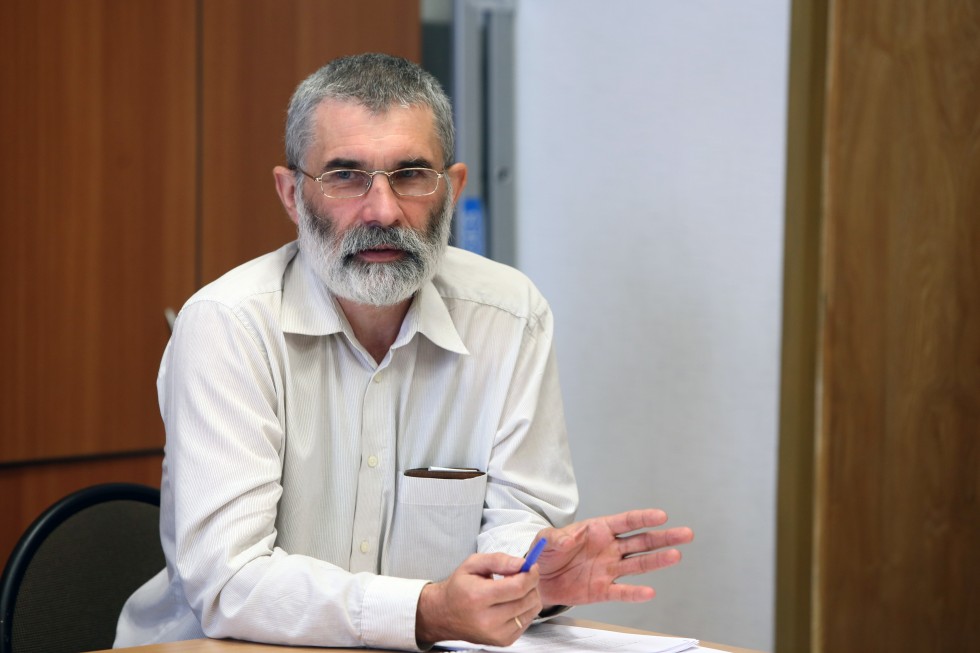SFI Opens its new Faculty of History

One of the tasks of the new faculty is to understand Russian 20th c. history – a time during which our teachers and students themselves lived - in an integral and holistic fashion. “The 20th century is the most debated and the least studied period of our country’s history – the period which borders on our present era,” says Head of Church History at SFI, Konstantin Oboznyj. “Without an understanding of our 20th c. history, we can’t really be grounded for contemporary liberal arts learning. All our efforts end up going nowhere in particular. We have experienced a rift not only in terms of our understanding of history, but in our feel for reality. Our programme is designed for those people who understand the degree to which this period is significant even for the world at large, and not only in terms of the life of Russia and the Russian church. We hope that a wide range of people will be interested in our programmes – especially school teachers and university professors in philosophy, cultural studies, politics, sociology and other humanitarian disciplines.”
Our continuing educational programme “History of the Russian Orthodox Church in the 20th Century” has been functional for two years now, and this year we welcomed our first graduates. As final course work, students defended independent research projects which focussed on little-studied spiritual movements within the Russian church. Our “Social History of our Fatherland” programme, which will be launched as an initiative of our History Faculty in 2020, is directed at understanding Russian cultural experience and Russia’s stages of societal development. The academic course load for the new programme will include courses such as: “History of Russian Religious Thought”, “History of Russian 20th Century Literature”, “A Survey of Russian History and Culture”, and “History of the anti-Bolshevik Resistance in the 20th Century”. Moreover, the programme will acquaint the student with the basics in terms of archival studies and bibliographic studies.
Both programmes will accentuate historiography, analyze various methods for undertaking historical research, and focus on the study and criticism of the most pervasive stereotypes that exist in our public consciousness. “I hope that our programme can assist in cleansing historical research of various mythologies and ideologies by, among other things, introducing a more holistic and professional approach to source materials,” says Konstantin Oboznyj. “It is not possible to study the history of the Orthodox Church simply by looking at documents published by the Synod and Councils of Archbishops – just as when we look at the history of repression in our country we can’t depend solely upon documents from the NKVD archives, as they are quite often less than reliable. Many important topics within the 20th century Russian Church History – such as the restoration of the Patriarchate in 1943, the seizure of Church valuables in 1922, the Renovationist schism, etc., are often taught in a schematic way or from a single ideological perspective. For the most part this isn’t by any evil design, but because of simple lack of knowledge.”
The Church History programme, in addition to presupposing the study of specialist courses such as “Experience of Spiritual Resistance in the 20th Century”, “The Local Church Council of 1917-18 and Movements Surrounding it”, and “Contemporary Approaches to Canonization and the Experience of the New Martyrs,” also presuppose familiarity with course materials from the “History of Everyday Soviet Life,” “Concepts of History in Philosophical and Religious Thought”, “Problems in the Study of Oral History”, and “The Sources and Evolution of Totalitarian Regimes”.
“Students of the Church History programme also discuss the life of the Russian Church in Emigration, looking at the experience of the Russian religious renaissance – one of the most important sources of developing Christian theology in the 20th century,” adds Oboznyj.
A reasonably high antecedent academic level is required for study in the SFI History Faculty. “Ideally a study would have at least a bachelor’s degree in a humanitarian discipline, insofar as the breath and complexity of the problems we will be looking at is oriented toward a master’s level,” says Konstantin Oboznyj.
The Faculty has set scholarly goals for itself, in addition to its teaching goals. “We are hoping to launch a sort of scholarly laboratory for developing a new concept of the history of our fatherland and our church,” says Oboznyj. “Although a reasonable number of scholarly works have come out over the past few years, nevertheless we still don’t have a holistic view of Russian history or the history of our Church in the 20th c. Nor do we see such a vision under development at major academic conferences that bring together leading researchers.”
The History Faculty will be made up of leading Russian researchers, including: Historian Kirill Aleksandrov, Fr. Georgy Mitrofanov (Professor), Fr. Ilya Solovyov, Vladimir Chernyaev, Elena Belyakova, Irina Gordeeva, Gleb Zapaljsky, Vera Kljueva, Aleksandr Feofanov, Yulia Balakshina, specialists in Philosophy Viktor Granovsky and Andrey Olejnikov, specialist in Cultural and Religious Studies Aleksandr Baranov, and others.
